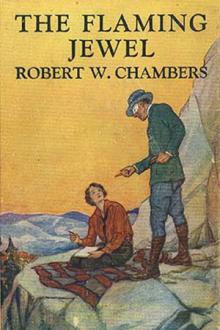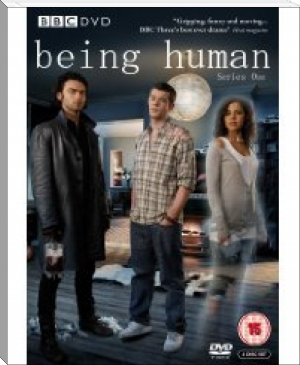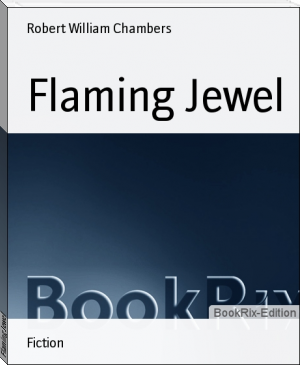The Flaming Jewel by Robert W. Chambers (e book reading free .TXT) 📖

- Author: Robert W. Chambers
- Performer: -
Book online «The Flaming Jewel by Robert W. Chambers (e book reading free .TXT) 📖». Author Robert W. Chambers
Now, he must advance with every caution. For here trickled the thin flow of that rocky rivulet which was the other entrance and exit penetrating that immense horror of marsh and bog and depthless sink-hole known as Drowned Valley.
For a long while he did not dare to use his torch; but now he was obliged to.
He shined the ground at his feet, elevated the torch with infinite precaution, throwing a fan-shaped light over the stretch of sink he had suspected and feared. It flanked the flat, wet path of rock on either side. Here Death spread its slimy trap at his very feet.
Then, as he stood taking his bearings with burning torch, far ahead in the darkness a light flashed, went out, flashed twice more, and was extinguished.
Quintana!
Smith's wits were working like lightning, but instinct guided him before his brain took command. He levelled his torch and repeated the three signal flashes. Then, in darkness, he came to swift conclusion.
There were no other signals from the unknown. The stony bottom of the rivulet was his only aid.
In his right hand the torch hung almost touching the water. At times he ventured sufficient pressure for a feeble glimmer, then again trusted to his sense of contact.
For three hundred yards, counting his strides, he continued on. Then, in total darkness, he pocketed the torch, slid a cartridge into the breech of his rifle, slung the weapon, pulled out a handkerchief, and tied it across his face under the eyes.
Now, he drew the torch from his pocket, levelled it, sent three quick flashes out into darkness.
Instantly, close ahead, three blinding flashes broke out.
For Hal Smith it all had become a question of seconds.
Death lay depthless on either hand; ahead Death blocked the trail in silence.
Out of the dark some unseen rifle might vomit death in his very face at any moment.
He continued to move forward. After a little while his ear caught a slight splash ahead. Suddenly a glare of light enveloped him.
"Is it you, Harry Beck?"
Instinct led again while wits worked madly: "Harry Beck is two miles back on guard. Where is Sard?"
The silence became terrible. Once the glaring light in front moved, then become fixed. There was a light splashing. Instantly Smith realised that the man in front had set his torch in a tree-crotch and was now cowering somewhere behind a levelled weapon. His voice came presently:
"Hé! Drap-a that-a gun damn quick!"
Smith bent, leisurely, and laid his rifle on a mossy rock.
"Now! You there! Why you want Sard! Eh?"
"I'll tell Sard, not you," retorted Smith coolly. "You listen to me, whoever you are. I'm from Sard's office in New York. I'm Abrams. The police are on their way here to find Quintana."
"How I know? Eh? Why shall I believe that? You tell-a me queeck or I blow-a your damn head off!"
"Quintana will blow-a your head off unless you take me to Sard," drawled Smith.
A movement might have meant death, but he calmly rummaged for a cigarette, lighted it, blew a cloud insolently toward the white glare ahead. Then he took another chance:
"I guess you're Nick Salzar, aren't you?"
"Si! I am Salzar. Who the dev' are you?"
"I'm Eddie Abrams, Sard's lawyer. My business is to find my client. If you stop me you'll go to prison—the whole gang of you—Sard, Quintana, Picquet, Sanchez, Georgiades and Harry Beck,—and you !"
After a dead silence: "Maybe you'll go to the chair, too!"
It was the third chance he took.
There was a dreadful stillness in the woods. Finally came a slight series of splashes; the crunch of heavy boots on rock.
"For why you com-a here, eh?" demanded Salzar, in a less aggressive manner. "What-a da matt', eh?"
"Well," said Smith, "if you've got to know, there are people from Esthonia in New York.... If you understand that."
"Christi! When do they arrive?"
"A week ago. Sard's place is in the hands of the police. I couldn't stop them. They've got his safe and all his papers. City, State, and Federal officers are looking for him. The Constabulary rode into Ghost Lake yesterday. Now, don't you think you'd better lead me to Sard?"
"Cristi!" exclaimed Salzar. "Sard he is a mile ahead with the others. Damn! Damn! Me, how should I know what is to be done? Me, I have my orders from Quintana. What I do, eh? Cristi! What to do? What you say I should do, eh, Abrams?"
A new fear had succeeded the old one—that was evident—and Salzar came forward into the light of his own fixed torch—a well-knit figure in slouch hat, grey shirt, and grey breeches, and wearing a red bandanna over the lower part of his face. He carried a heavy rifle.
He came on, sturdily, splashing through the water, and walked up to Smith, his rifle resting on his right shoulder.
"For me," he said excitedly, "long time I have worry in this-a damn wood! Si! Where you say those carbinieri? Eh?"
"At Ghost Lake. Your signature is in the hotel ledger."
"Cristi! You know where Clinch is?"
"You know, too. He is on the way to Drowned Valley."
"Damn! I knew it. Quintana also. You know where is Quintana? And Sard? I tell-a you. They march ver' fast to the Dump of Clinch. Si! And there they would discover these-a beeg-a dimon'—these-a Flame-Jewel. Si! Now , you tell-a me what I do?"
Smith said slowly: "If Quintana is marching on Clinch's he's marching into a trap!"
Salzar blanched above his bandanna.
"The State Troopers are there," said Smith. "They'll get him sure."
"Cristi," faltered Salzar, "—then they are gobble—Quintana, Sard, everybody! Si?"
Smith considered the man: "You can save your skin anyway. You can go back and tell Harry Beck. Then both of you can beat it for Drowned Valley."
He picked up his rifle, stood a moment in troubled reflection:
"If I could overtake Quintana I'd do it," he said. "I think I'll try. If I can't, he's done for. You tell Harry Beck that Eddie Abrams advises him to beat it for Drowned Valley."
Suddenly Salzar tore the bandanna from his face, flung it down and stamped on it.
"What I tell Quintana!" he yelled, his features distorted with rage. "I don't-a like!—no, not me!—no, I tell-a heem, stay at those Ghost-a Lake and watch thees-a fellow Clinch. Si! Not for me thees-a wood. No! I spit upon it! I curse like hell! I tell Quintana I don't-a like. Now, eet is trouble that comes and we lose-a out! Damn! Damn! Me, I find me Beck. You shall say to José Quintana how he is a damfool. Me, I am finish—me, Nick Salzar! You hear me, Abrams! I am through! I go!"
He glared at Smith, started to move, came back and took his torch, made a violent gesture with it which drenched the woods with goblin light.
"You stop-a Quintana, maybe. You tell-a heem he is the bigg-a fool! You tell-a heem Nick Salzar is no damn fool. No! Adios, my frien' Abrams. I beat it. I save my skin!"
Once more Salzar turned and headed for Drowned Valley.... Where Clinch would not fail to kill him.... The man was going to his death.... And it was Smith who sent him.
Suddenly it came to Smith that he could not do this thing; that this man had no chance; that he was slaying a human being with perfect safety to himself and without giving him a chance.
"Salzar!" he called sharply.
The man halted and looked around.
"Come back!"
Salzar hesitated, turned finally, slouched toward him.
Smith laid aside his pack and rifle, and, as Salzar came up, he quietly took his weapon from him and laid it beside his own.
"What-a da matt'?" demanded Salzar, astonished. "Why you taka my gun?"
Smith measured him. They were well matched.
"Set your torch in that crotch," he said.
Salzar, puzzled and impatient, demanded to know why. Smith took both torches, set them opposite each other and drew Salzar into the white glare.
"Now," he said, "you dirty desperado, I am going to try to kill you clean. Look out for yourself!"
For a second Salzar stood rooted in blank astonishment.
"I'm one of Clinch's men," said Smith, "but I can't stick a knife in your back, at that! Now, take care of yourself if you can——"
His voice died in his throat; Salzar was on him, clawing, biting, kicking, striving to strangle him, to wrestle him off his feet. Smith reeled, staggering under the sheer rush of the man, almost blinded by blows, clutched, bewildered in Salzar's panther grip.
For a moment he writhed there, searching blindly for his enemy's wrist, striving to avoid the teeth that snapped at his throat, stifled by the hot stench of the man's breath in his face.
"I keel you! I keel you! Damn! Damn!" panted Salzar, in convulsive fury as Smith freed his left arm and struck him in the face.
Now, on the narrow, wet and slippery strip of rock they swayed to and fro, murderously interlocked, their heavy boots splashing, battling with limb and body.
Twice Salzar forced Smith outward over the sink, trying to end it, but could not free himself.
Once, too, he managed to get at a hidden knife, drag it out and stab at head and throat; but Smith caught the fist that wielded it, forced back the arm, held it while Salzar screamed at him, lunging at his face with bared teeth.
Suddenly the end came: Salzar's body heaved upward, sprawled for an instant in the dazzling glare, hurtled over Smith's head and fell into the sink with a crashing splash.
Frantically he thrashed there, spattering and floundering in darkness. He made no outcry. Probably he had landed head first.
In a moment only a vague heaving came from the unseen ooze.
Smith, exhausted, drenched with sweat, leaned against a tamarack, sickened.
After all sound had ceased he straightened up with an effort. Presently he bent and recovered Salzar's red bandanna and his hat, lifted his own rifle and pack and struggled into the harness. Then, kicking Salzar's rifle overboard, he unfastened both torches, pocketed one, and started on in a flood of ghostly light.
He was shaking all over and the torch quivered in his hand. He had seen men die in the Great War. He had been near death himself. But never before had he been near death in so horrible a form. The sodden noises in the mud, the deadened flopping of the sinking body—mud-plastered hands beating frantically on mud, spattering, agonising in darkness—"My God," he breathed, "anything but that—anything but that!——"
IIBefore midnight he struck the hard forest. Here there was no trail at all, only spreading outcrop of rock under dying leaves.
He could see a few stars. Cautiously he ventured to shine his compass close to the ground. He was still headed right. The ghastly sink country lay behind him.
Ahead of him, somewhere in darkness—but how far he did not know—Quintana and his people were moving swiftly on Clinch's Dump.
It may have been an hour later—two hours, perhaps—when from far ahead in the forest came a sound—the faint clink of a shod heel on rock.
Now, Smith unslung his pack, placed it between two rocks where laurel grew.
Salzar's red bandanna was still wet, but he tied it across his face, leaving his eyes exposed. The dead man's hat fitted him. His own hat and the extra torch he dropped into his basket-pack.
Ready, now, he moved swiftly forward, trailing his rifle. And very soon it became plain to him that the people ahead were moving without much caution, evidently fearing no unfriendly ear or eye in that section of the wilderness.
Smith could hear their tread on rock and root and rotten branch, or swishing through frosted fern and brake, or louder on newly fallen leaves.
At times he could even see the round white glare of a torch on the ground—see it shift ahead, lighting up tree trunks, spread out, fanlike, into a wide, misty glory, then vanish as darkness rushed in from the vast ocean of
 Reading books romantic stories you will plunge into the world of feelings and love. Most of the time the story ends happily. Very interesting and informative to read books historical romance novels to feel the atmosphere of that time.
Reading books romantic stories you will plunge into the world of feelings and love. Most of the time the story ends happily. Very interesting and informative to read books historical romance novels to feel the atmosphere of that time.




Comments (0)